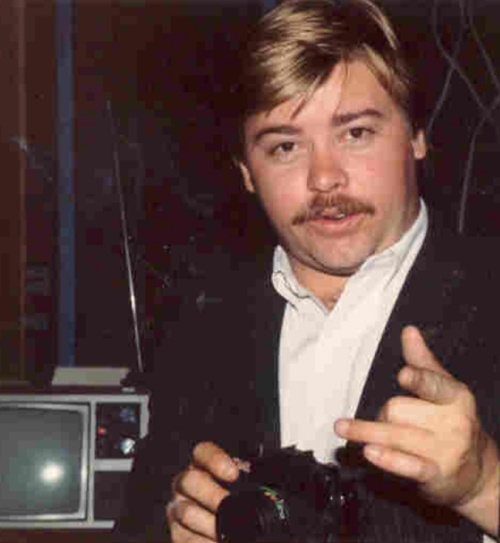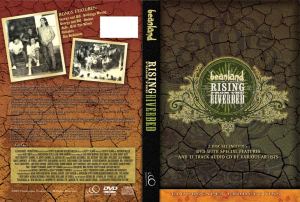For those of you who knew Tom well, it should come as no surprise that he left very specific and detailed instructions to the conduct of his funeral; in three single-spaced typewritten pages, Tom covered everything from boutonnieres to backhoes. We have done our best to adhere to his wishes, but I can’t help but feel that he’s somewhere taking notes on our shortcomings.
I’m sure we’ll all catch hell for it one of these days.
Tom wanted words from the heart, but he qualified those as well, wanting me to speak about what set him apart from what he called “the rest of the human herd”. This is why I began by mentioning his exhaustive instructions for this ceremony, because they serve to illustrate the most essential element of Tom’s nature.
Tom Yancy was a perfectionist in an imperfect world. Somewhere along the way, he decided that whoever was in charge of the production was fucking everything up, so he set about putting things right. From his father, Tom inherited a passion for order; from his mother, an accentuated sense of propriety. These were his primary resources in a war against a world filled with sloppy architecture, bad beauty show contestants and other violations against his impeccable and justifiable standards. His epic indignation was a bar by which I and others set our own standards against the dictates of reality .
Tom declared–I don’t think Tom ever really “said” anything–that I read a selection of literary passages, but these three pages of addenda (for that is what they were) have been lost in a tragic act of negligence on my part, so I’ve elected to read a passage by Tom’s favorite author, Eudora Welty. Tom loved Welty because, like him, she was interested in the foibles and eccentricities of people, the quirks of character that make us stand out in what Tom called a herd of humanity of which he was an errant, beguiling shepherd.
“The funeral was what you’d expect if you’d ever seen Polk—crowded. It was hot as fluzions in that little front room. A lot of Jacob’s-Ladder tops and althea blooms sewed on cardboard crosses, and a saliva wreath with a bee in it. A lot of ferns hauled out of creek bottoms and drooping by the time they got ready for them. People, people, people, flowers, flowers, flowers, and the shades hauled down and the electricity burning itself up, and two preachers both red-headed; but mainly I felt there were Peacocks. Mrs. Peacock was big and fat as a row of pigs, and wore tennis shoes to her daughter’s funeral—I guess she couldn’t help it.”
Like Welty, Tom enjoyed telling stories about people; but like his father he also loved to hear stories about himself. I implore you all to go from here and tell your tales of this wonderful, wonderful man.





